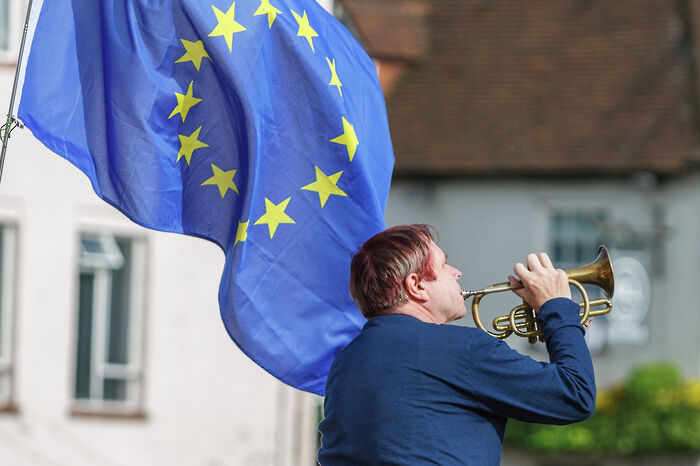Britain should defend Cyprus, or go
Georgio Konstandi explores his personal connection with the island of Cyprus and questions the British Government’s role in its tumultuous past

As someone whose father, at six years old, was thrown out of his home by invading forces during the 1974 invasion of Cyprus, the poorly-reported affairs of the island I consider a home away from home remain of both political and personal interest. Furthermore, as a British citizen, Britain’s role in Cyprus is often a source of bitter disappointment.
British involvement in Cypriot politics has been, for better or for worse, a notable constant since their annexation of the island from Ottoman rule in 1914. As that classic saying goes, you’d better make friends with your liberators as they may just end up becoming your masters. Indeed, British annexation led to British colonisation and Cyprus would have to wait until 1960 to emancipate herself.
Except that never happened. Following decades of colonial rule, in 1959, the London-Zürich Agreements offered Cyprus an independence of sorts. Rather like when dealing with a troublesome teenager, Cyprus was allowed her freedom on the condition that her ‘mother states’ - Great Britain, Greece and Turkey - could ‘intervene’ if they deemed it necessary for the sake of peace on the island.
Great Britain, a beacon of democracy, did very little to defend democracy in Cyprus when it mattered most
This was a dangerous clause of a dangerous constitution that inevitably allowed two of these ‘mother states’ to ‘intervene’ in a rather non-maternal manner in July 1974. What do you need to restore peace in a fractured community? According to Athens and Ankara, a motley crew of Greek nationalists, followed by 40,000 Turkish troops. The result of such intervention was of course quite the opposite: pillaging, slaughter and rape on an unthinkable scale for an island of Cyprus’ proportion.
If you speak with Cypriots of my grandparents’ generation, they will tell you that Greek and Turkish Cypriots cohabited perfectly peacefully prior to Cypriot independence from British rule. Oddly enough, it was the very essence of the ‘Cypriot’ constitution, drafted with the generous help of British, Greek and Turkish leaders, that had contributed greatly to Cyprus’ socio-political breakdown of the 1970s. Britain, Greece and Turkey: so many cooks for just one broth.
The uncomfortable truth for Westminster with regards to Cyprus - though I am told other matters currently occupy their diary - is that Great Britain, a beacon of democracy, did very little to defend democracy in Cyprus when it mattered most. Though the country was able to annex the island in 1914, rule it for over four decades and play a key role in deciding how an ‘independent’ Cyprus should govern itself, remarkably, when violence ravaged Aphrodite’s soils, the proverbial cat had seemingly seized Britain’s tongue.
May we not forget that in 1974, as Turkish tanks crushed Cyprus’ hills, Great Britain already had two military bases on the island. Indeed, in 1982, the British government was able to move its navy nearly four thousand miles south to defend the Falklands but just eight years earlier was unable to use its military forces already stationed in Cyprus to protect Cypriots from atrocities.
You cannot stay silent in the face of evil again
The less said about the unearthed British and CIA collaboration to encourage inter-ethnic fighting during the 1960s, the better. The BBC has kindly covered that for us.
I am not, nor should anyone be, interested in enforcing guilt onto today’s generation of politicians. What interests me, what interests Cypriots, is truth and justice. Justice takes many forms. Today’s volatile political atmosphere presents those in power with ample opportunity to use their force to uphold justice. Last year, Ankara deployed warships to scare Cypriot vessels from drilling in their own waters. Recently, Turkey’s president bypassed international law and sent Turkish ships to drill in the internationally-recognised Cypriot maritime zone.When Cyprus protested? A chilling message given to my father’s generation: “Remember 1974”.
The language of thugs rings loud and clear, yet the British government, once again, remains terribly coy. Interestingly, not so coy as to remove its military bases from the island but indeed coy enough to abstain from reprimanding acts of aggression and threats against humanity. Well Westminster, what shall it be? Onto which side of the fence will you fall?
Great Britain, you have done many great things. Your strength and resolve once helped to save Europe from the clutches of a monster and you continue to lead by example with a liberal democracy that flies in the face of global despots. Alas, your track record on the island from which my father fled leaves much to be desired. If indeed you wish to continue your presence on Aphrodite’s soil, if you still wish to be considered a credible force on the international stage, you must use such grandeur to put tyrants in their place and protect innocent civilians. You cannot stay silent in the face of evil again. Defend Cyprus, or go.
 Comment / College rivalry should not become college snobbery30 January 2026
Comment / College rivalry should not become college snobbery30 January 2026 News / Downing Bar dodges college takeover31 January 2026
News / Downing Bar dodges college takeover31 January 2026 News / Cambridge for Palestine hosts sit-in at Sidgwick demanding divestment31 January 2026
News / Cambridge for Palestine hosts sit-in at Sidgwick demanding divestment31 January 2026 Science / Meet the Cambridge physicist who advocates for the humanities30 January 2026
Science / Meet the Cambridge physicist who advocates for the humanities30 January 2026 Features / Are you more yourself at Cambridge or away from it? 27 January 2026
Features / Are you more yourself at Cambridge or away from it? 27 January 2026










